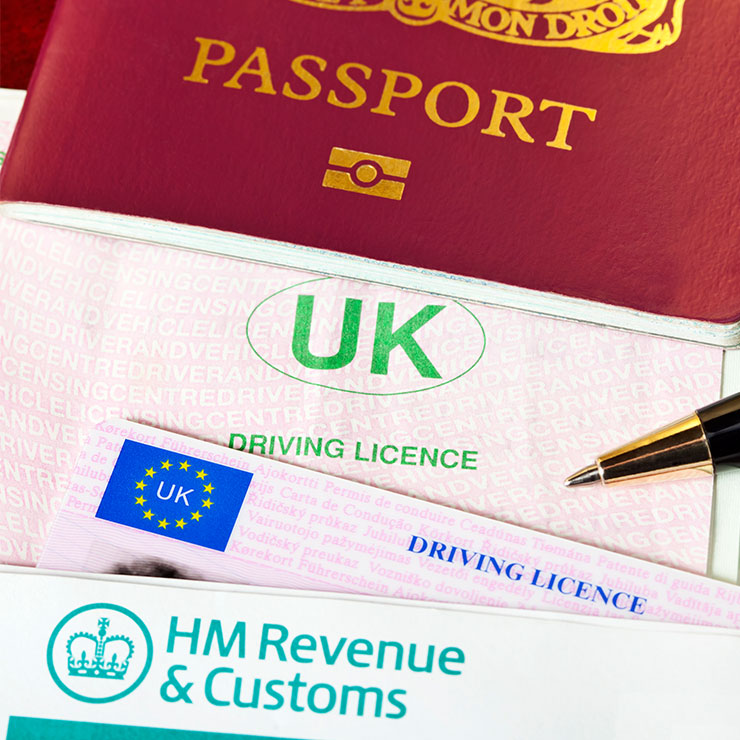Introduction
Employment screening comprises the procedures involved in deciding an individual's suitability to hold employment in a given job role. This is not limited to 'new joiners', but also individuals who are moving between job roles within an organisation. A suitable level of screening should be applied to all individuals who are provided access to organisational assets including permanent, temporary and contract workers.
Appropriate screening measures help to provide cost effective and legally compliant assurance that only the right people, in the right job roles, are working within your organisation.
The application of screening measures will vary across organisations and across job roles. Basing screening decisions on thorough security risk assessments will ensure that any measures adopted will be proportionate to the risks and make best use of valuable resources.

We have also provided guidance to consider how contract staff may pose the same, or differing, security risks and how your organisation can effectively manage the risk of granting contractors access to your sites and assets on the Contract Staff page.
As part of an overarching protective security strategy the appropriate application of pre-employment screening will:
- deter applicants who may wish to harm your organisation from applying for employment
- detect individuals with an intent to harm your organisation at the recruitment/application phase
- deny employment to individuals intending to harm your organisation, and deny employment in roles for which the applicant is unsuitable.
Pre-employment Screening Guidance
Pre-employment screening verifies the credentials of job applicants and, as such, is a crucial element of any personnel security regime; but screening methods can vary greatly. NPSA's Pre-Employment Screening guidance can be used as a "one-stop" handbook for:
- Verification of identity, the right to work in the UK, employment history and qualifications
- Checks for criminal records, on finances and on time spent overseas

An Employment Screening Quick Guide is also available as a quick summary of the guidance.
The Document Verification guidance provides guidance to staff within organisations who undertake document verification as part of the Pre-Employment Screening process, in particular those confirming identity or checking supporting documentation as part of Pre-Employment Screening checks. It highlights the main security features present in a number of documents and the main methods used to forge such documents. It should assist staff in the detection of basic forgeries.
This document should be read in conjunction with NPSA's Pre-Employment Screening: a good practice guide.
The use of the internet, social media in particular, for employment reasons is widespread, routine and growing. Employers are increasingly reviewing the online presence of candidates as part of their recruitment processes. While this can provide useful pre-employment screening information on candidates, doing so can present a number of challenges. The Use of the internet in pre-employment screening guidance has been written to provide employers with some simple principles that they should consider if they wish to conduct online checks of potential employees.
How to obtain an Overseas Criminal Records Check
Criminal records checks are a fundamentally important element of pre-employment screening and, therefore, of any personnel security regime; but the process for obtaining a criminal record check varies significantly between countries. NPSA's How to obtain an Overseas Criminal Record Check provides country-by-country guidance for employers, employees and prospective employees, covering sixty-four locations:

Albania, Argentina, Australia, Austria, Bangladesh, Belarus, Belgium, Bosnia-Herzegovina, Brazil, Bulgaria, Canada, China, Croatia, Cyprus, Czech Republic, Denmark, Estonia, Finland, France, Germany, Ghana, Greece, Hungary, Iceland, Indonesia, India, Ireland, Italy, Japan, Latvia, Liechtenstein, Lithuania, Luxembourg, Macedonia, Malaysia, Malta, Mexico, Moldova, Montenegro, Netherlands, Nigeria, New Zealand, Norway, Pakistan, Philippines, Poland, Portugal, Romania, Russia, Serbia, Singapore, Slovakia, Slovenia, South Africa, South Korea, Spain, Sri Lanka, Sweden, Switzerland, Thailand, Turkey, Ukraine, United Arab Emirates, United States of America.
The How to obtain an Overseas Criminal Records Check: Quick Reference Guide is an overview document on how to obtain criminal records disclosure on individuals in 64 countries. This guidance is aimed to assist employers and employees gain an immediate appreciation of the processes involved in obtaining criminal record checks in specific country locations.
Take Another Look video
Take Another Look: ID Verification
This short film highlights the importance of verifying a person's identity and the authenticity of their identity documents as part of the recruitment process. It also serves as a refresher for those who have undertaken identity and document verification training.
Accompanying the film is a handy desktop checklist, which reinforces key messages in the film.
The DVD-ROM also includes the Operation FAIRWAY PDF document 'A Guide to Document Awareness'.
Copies of the DVD and checklist can be obtained by emailing [email protected].
Other Resources
Coronavirus (COVID19): Right to Work checks
See GOV.UK for more advice on how to conduct Right to Work checks during the pandemic.
GOV.UK provides further information on what checks employers can make on job applicants.
Guidance
- Pre-employment screening - A good practice guide - Edition 805-02-2021Download
- Employment Screening Quick Guide16-08-2021Download
- Pre-employment screening – document verification guidance03-08-2023Download
- Use of internet in pre-employment screening21-09-2016Download
- How to Obtain an Overseas Criminal Records Check28-08-2018Download
- How to Obtain an Overseas Criminal Records Check: Quick Reference Guide03-08-2023Download